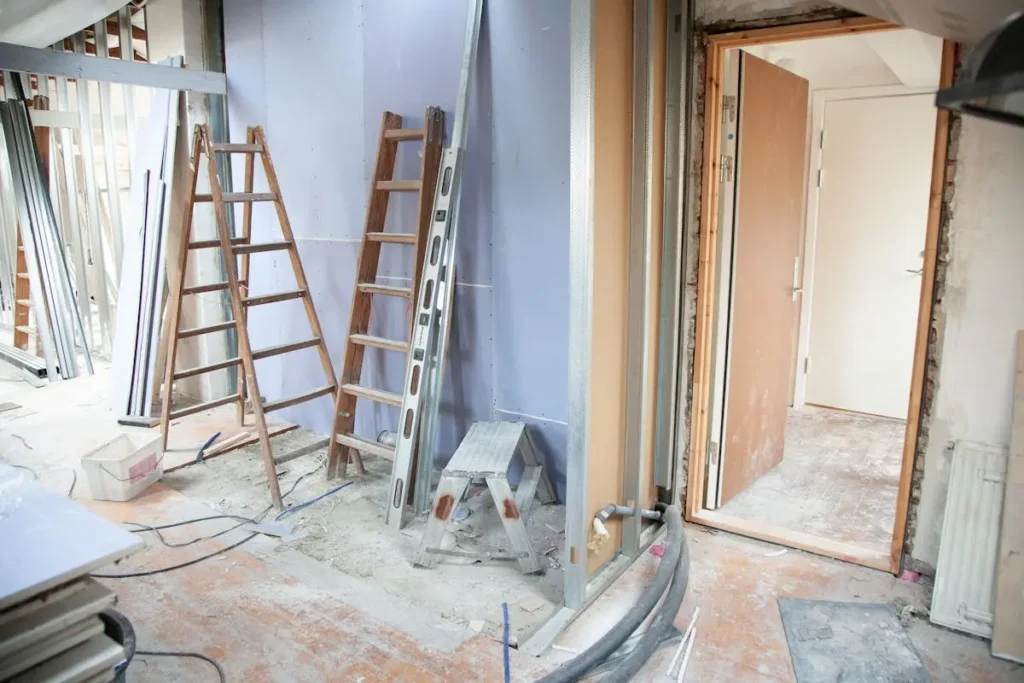Selling your home can be an exciting yet daunting process. While the focus often lies on the profits, many sellers overlook the costs that can creep up unexpectedly. In this blog, we’ll explore the expenses associated with a home sale that you should be aware of.
1. Agent Commissions
Real estate agents typically earn a commission based on the sale price of the home. This is usually a percentage that the seller agrees to pay to both the buyer’s and seller’s agents. This commission can be significant, often ranging from 5% to 6% of the sale price, which can equate to thousands of dollars depending on your home’s value. It’s important to remember that this fee is payable at closing, so having the funds set aside is essential. Since agents are crucial in negotiating and closing deals, their role can be a double-edged sword in terms of cost. While they increase expenses, their expertise can also maximize the sale price, offsetting their fees. Evaluating whether the potential increase in sale price justifies the expense can help you make a more informed decision.
Choosing the right agent is crucial, as a knowledgeable agent might get you a better deal that compensates for their commission. Research shows that experienced agents often fetch higher sale prices, and their expertise can guide you through complex negotiations. Therefore, while agent commissions are a definite cost, understanding the value they provide can help in accepting this expense.
2. Closing Costs
Beyond the selling price, sellers are often responsible for various closing costs like title insurance, escrow fees, and notary fees, which can add up quickly. Typically, these fees account for 2% to 5% of the home’s sale price. An often-overlooked aspect of closing costs is the prorated property taxes. As a seller, you’re responsible for paying property taxes up to the day of closing, which could mean covering a few additional months which weren’t initially considered. This is why understanding all components of closing fees is crucial to avoid any unexpected financial burdens at the closing table.
Additionally, items like transfer taxes and recording fees might be required, where applicable. Each of these costs might seem minimal when viewed individually, but together they can create a substantial sum. To navigate these costs effectively, it is crucial to request an itemized list of closing costs from your agent or attorney so that you can budget accordingly.
3. Home Repairs and Improvements
Buyers might request repairs or updates as part of the sale agreement. These expenses can vary and may be necessary to ensure a successful transaction. Common repairs include fixing structural issues, updating old plumbing, or repairing any damage. Even minor repairs such as patching holes, fixing leaks, or painting walls can improve the home’s appeal significantly, but these seemingly minor updates can accumulate into large expenses. Doing a pre-sale inspection can help identify these potential costs upfront.
4. Staging Costs
Staging a home can make it more appealing to potential buyers, but hiring a professional stager or renting furniture can be costly. Studies suggest that staged homes not only sell quicker but can fetch a higher price compared to non-staged homes. However, the cost of renting furniture and accessories can be steep, with professional staging services running several hundreds to thousands of dollars, depending on the home’s size and style. Therefore, weighing the cost against potential benefits is essential.
Even opting for DIY staging approaches can incur costs, albeit smaller ones, such as purchasing decorative items or paint. The decision to stage should revolve around the property’s target market; for high-value properties, professional staging may be more justified, whereas for mid-market homes, DIY can work just as well.
5. Moving Expenses
Don’t forget about the cost of moving out. Whether you’re hiring movers or renting a truck, these costs are essential to factor in. The price of hiring movers varies significantly based on distance, weight, and services required, and it can range from a few hundred to several thousand dollars. Planning in advance can help mitigate these expenses, such as booking movers ahead of time to avoid last-minute price hikes. Consider expenses for packing materials and insurance for your belongings.
Opting for professional movers means less stress but can increase costs; alternatively, renting a truck and doing it yourself can be more economical if you have the time and muscle available. Another hidden cost associated with moving is storage fees if your new residence isn’t ready immediately; factoring these into your budget will provide a more comprehensive picture of your final moving costs.
6. Utilities During Vacancy
If your home remains on the market for a while, you’ll need to cover utilities to keep the property comfortable for showings. This might mean maintaining electricity, water, and heat or air conditioning, all of which can become costly over time, especially if the house lingers on the market during peak utility cost seasons. Ensuring that lights are on and temperatures are comfortable is crucial, as it affects potential buyers’ perceptions during visits, so these costs cannot be ignored lightly.
Moreover, homes that showcase well-lit rooms and comfortable temperatures tend to evoke a stronger emotional response from buyers, aiding in quicker sales. Thus, prioritizing these expenses, even though they appear as burdensome, can facilitate a smoother selling process. An understanding of average utility costs in your area can also help manage these expenses more effectively.
7. Property Taxes Until Closing
Property taxes don’t cease with the sale of the home. Sellers are responsible for covering taxes up until the closing date. In many instances, these taxes are prorated, meaning you’ll only pay for the portion of the year or quarter you’ve lived in the house. It’s crucial to account for these expenses as you finalize your sale, ensuring they’re accurately covered within the closing financials and preventing any delays or surprises.
8. Pre-Sale Home Inspection
Choosing to have a pre-sale inspection can reveal potential issues, giving you the opportunity to fix them before any buyers spot them. This proactive approach can make the negotiation process smoother, as fewer surprises from a buyer’s inspection can lead to faster agreement finalizations. Although pre-sale inspections can cost several hundred dollars, they serve as a useful tool in setting a realistic price and informing potential buyers of the condition of your home.
9. Mortgage Payoff Fees
Many lenders charge fees for paying off a mortgage early. Check with your lender to understand any penalties you might face. This could include early termination fees or other charges that vary by lender and mortgage agreement. Knowing these details beforehand allows you to prepare and possibly negotiate better terms with your lender.
10. Marketing and Advertising
Effective marketing can attract more buyers, but spending on photography, online listings, or other advertising means more upfront costs. Professional photographs can enhance your listing, making it more appealing and increases the likelihood of potential buyers scheduling a tour. Many sellers invest in premium listings with online real estate services to increase visibility, especially in competitive markets.
Incorporating targeted advertising on social media or local publications might also be part of your strategy, each with its cost structure. We offer a competitive pricing in this regard. Though the expenses can vary widely based on the marketing strategy employed, their impact can significantly increase the likelihood of a quick and profitable sale. Balancing marketing expenses against the potential reach and effectiveness of these methods is critical for maximizing return on investment.
The Simplicity and Efficiency of Cash Offers
Listing and selling a home the traditional way can be very expensive, time consuming and expensive. By opting for a cash offer, an ‘as-is’ sale, you can avoid the hassle of renovations, streamline the transaction, and gain the peace of mind of a quick sale. If you’re looking to avoid the hassle and stress of a traditional sale, consider the simplicity and efficiency that a cash offer brings. This growing alternative is a great way to start your home selling process.




